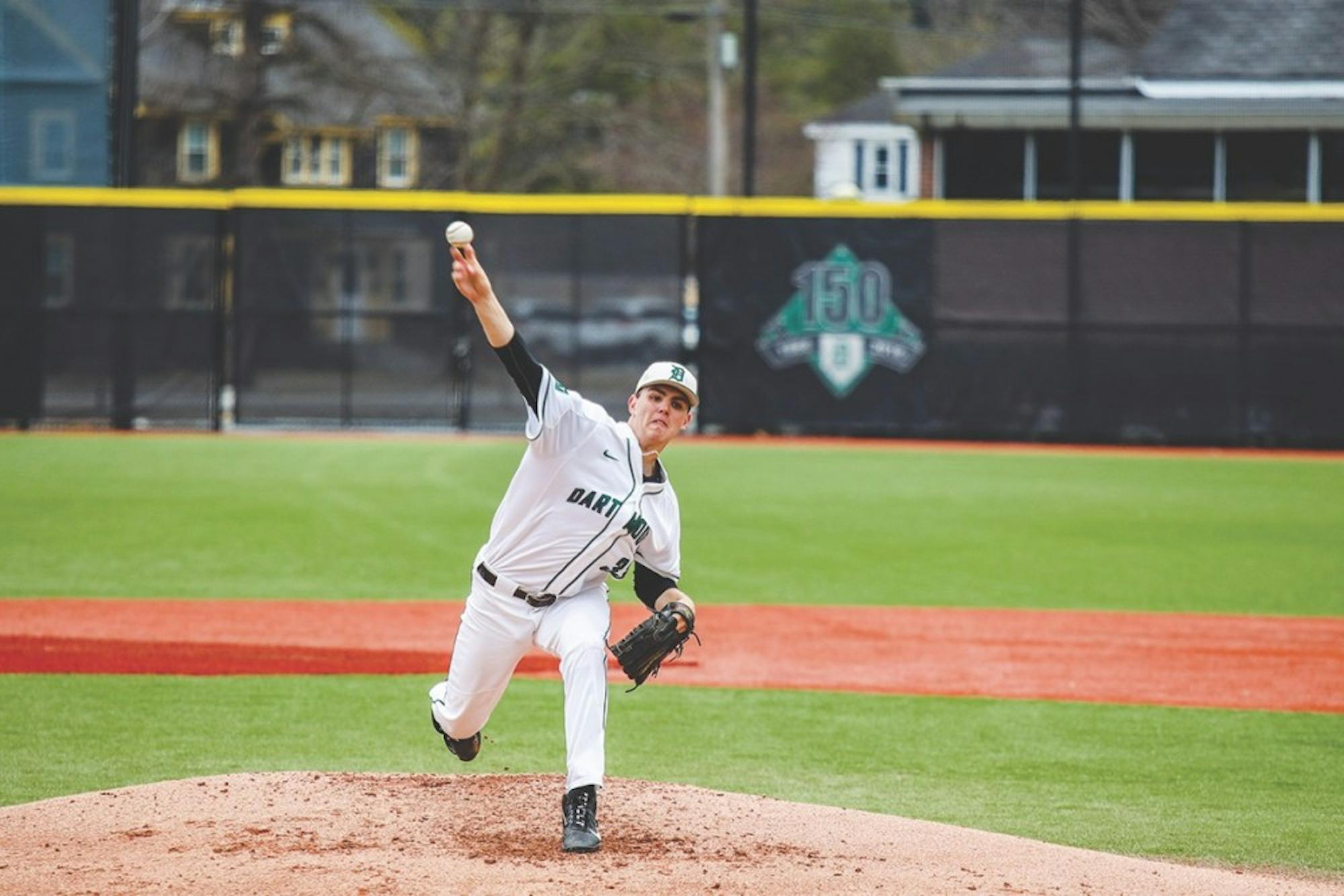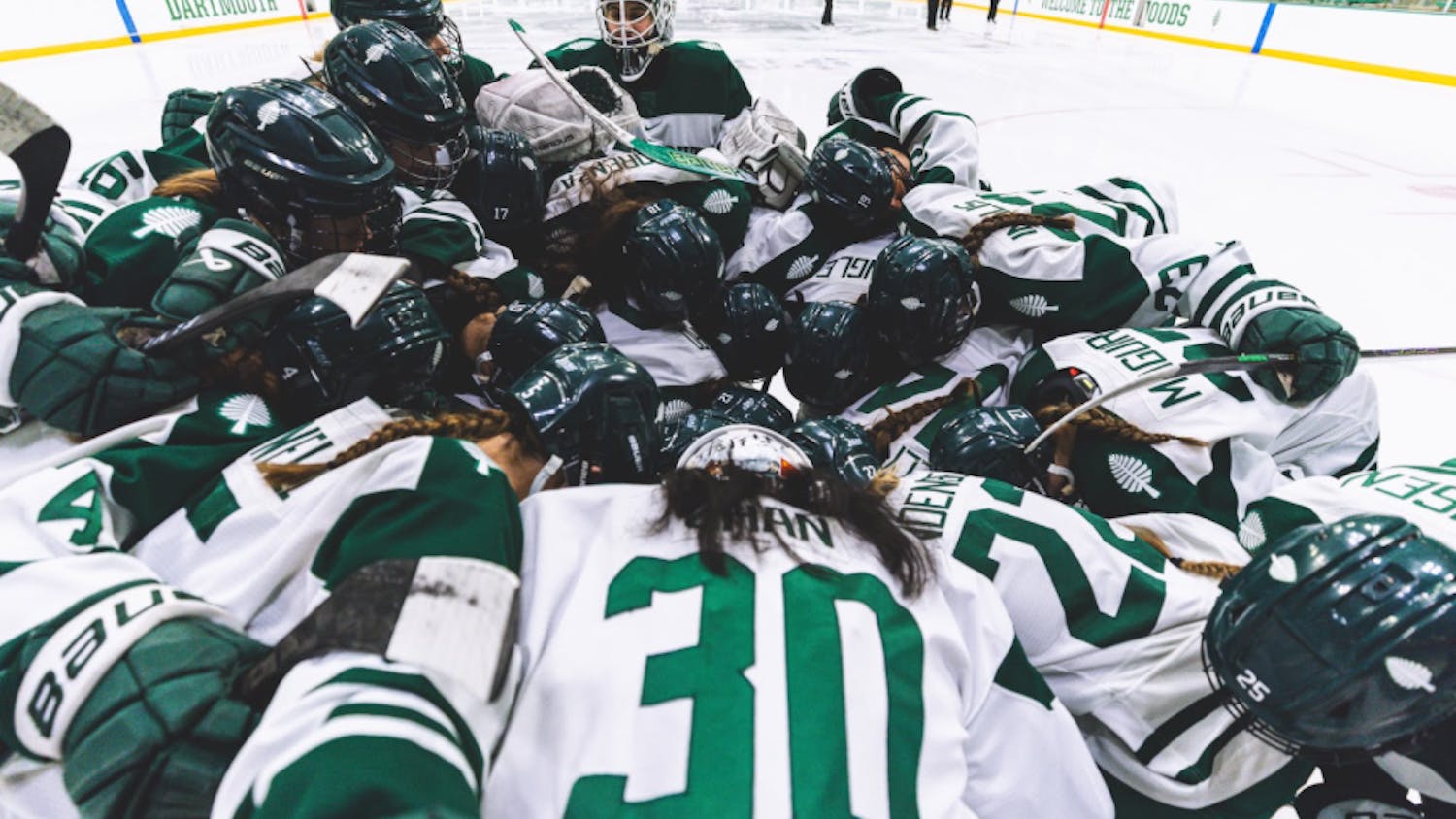Many people criticize baseball for being a slow-paced game without a lot of scoring. Scores like 3-1 and 4-3 are very common at all levels, and Major League Baseball commissioner Rob Manfred has been trying to increase the number of runs scored since he took office. But lately, the Dartmouth baseball team has found itself in more high-scoring affairs with scores that would be more common in football games than baseball games.
Sometimes these offensive explosions have favored the Big Green while other times they have come at Dartmouth’s expense. Dartmouth beat Princeton University 23-3 and Columbia University 23-1 earlier in conference play, but it has also lost high-scoring affairs by scores of 23-9, 16-10 and 21-15 against Columbia, College of the Holy Cross and the University of Pennsylvania, respectively.
“If you do this as long as I have, you’re going to be on both sides of [those types of games] more than a couple of times,” head coach Bob Whalen said.
As Whalen indicated, every team inevitably has good and bad games, but the nature of the team’s games is especially noteworthy given the way that the Big Green started the season. In its first 10 games, all against non-league opponents, Dartmouth thrived on the mound and defensively. It surrendered three or fewer runs in half of those 10 games and gave up more than 10 just once in a 12-3 loss to the University of Texas at San Antonio.
While the pitching did its part during that stretch, the offense was ineffective. Dartmouth didn’t score more than six runs even once in its first 15 games, which was largely to blame for the team’s 5-10 start.
Since then, the offense hit its stride. It has scored nine runs or more in seven of their nine games from March 23 to April 6, even breaking the 20-run mark twice.
“We’re really talented offensively this year,” Ubaldo Lopez ’21 said. “Our lineup is deep. Even the guys we bring off the bench keep driving in runs.”
Even amidst the offensive explosion, Dartmouth finds itself at 5-8 during that 13-game stretch. That’s largely due to recent struggles on the mound. Before taking two out of three games against Brown University this weekend, the Big Green had surrendered double-digit runs in seven of its nine previous games, including five consecutive defeats.
The recent shift in pitching and hitting performance came right at the start of Ivy League play, which might not be so coincidental. Twelve of Dartmouth’s last fourteen games have been against other Ivy League opponents, as it plays a new conference foe each weekend in an exhausting three-game series over the span of the two days.
“There’s no conference in the country other than the Patriot League that fits 18 innings into one day,” Whalen said.
The way the Ivy League season is formatted wears on all teams equally, but one possible explanation for the recent flurry of offense could be that the tiring season wears on the pitchers more than the hitters.
“On offense, we don’t really get as tired,” Lopez said. “There’s a big drop-off from the top pitchers. Pitchers start to make mistakes, and if you make a mistake as a pitcher, you go from hitting a spot to leaving balls down the middle.”
While teams can obviously substitute their pitchers regularly, there are only so many that can stay fresh when the team is playing 27 innings of baseball in two days. Dartmouth also had a few four-game series in the span of three days earlier in the season, but the team had plenty of time to rest between them.
However, Ivy League play started abruptly and without much rest after spring break due to a change in the schedule that was implemented before the 2018 season. Before that season, Dartmouth and other Ivy League teams would play four games in a weekend, either a four-game series or two against one opponent and two against another. One game each day was seven innings and another was nine, totaling a whopping 32 innings over the course of a weekend. The Ivy League season was completed in five weekends, whereas the season now takes seven weekends.
“We had to open up at Princeton straight from the spring trip without having all of our pitchers [rested],” Whalen said. “Everybody’s in the same boat, but it’s just a different dynamic.”
With every Ivy League opponent making do with tired pitchers, it’s only natural that we’ve seen so many offensive outbursts. In the MLB, the league average for runs scored per game in 2018 was 4.45. While that low number is partially due to the use of less powerful wooden bats in contrast to alumnium bats in college, a lot of the difference in runs scored is due to the increase in quality pitchers and the depth of MLB pitching staffs and bullpens. This allows teams to keep their most talented pitchers rested throughout the season, whereas college teams may not have as many quality arms in the rotation.
Even in comparison to lower levels of baseball though, Dartmouth’s recent games have been high-scoring.
“They’ve been more high scoring than I was used to in high school,” Bryce Daniel ’22 said.
After its fourth weekend of Ivy League play, Dartmouth is past the halfway point and has three more weekends to try to earn a spot in the Ivy League Championship as a top-two team in the conference. If the first half of conference play was any indication, the next few weeks will consist of exciting baseball as the Big Green look to climb back into the race for the Ivy League crown.




